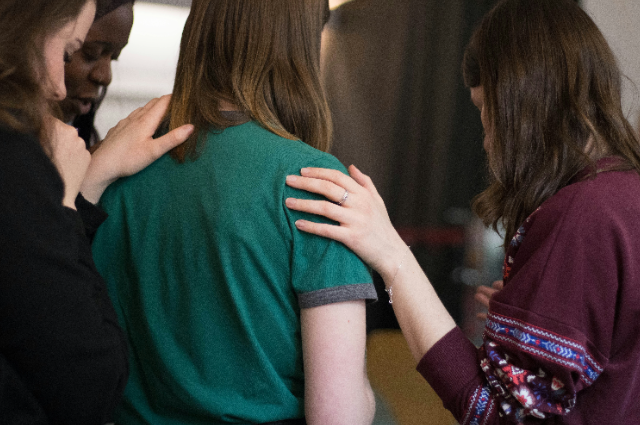
Photo by Rosie Sun on Unsplash
The stress of paid work, combined with the unpaid labour women are expected to perform at home, inevitably takes a toll on their mental health. And let's not even discuss all that working mothers worry about daily. We don't talk a lot about how patriarchy harms our mental health, right? We often witness the physical harm misogyny causes women, but rarely do we acknowledge the emotional and psychological toll it takes. It's not a surprise that women are diagnosed with anxiety and depression more than men. Most women work outside of the home before returning home to work some more.
Marriage, Motherhood, and Mental Health: What EVERY WOMAN Should Know
When people laugh as if it is a joke when discussing how a woman can't leave her children to go away with their spouse to have a break, it speaks volumes about how we dismiss it as a serious situation. It is unfortunate that men are held to such low standards that they are given the freedom and ability to "not do it," but are expected to do everything else in the world. For mothers, balancing a paid job with full-time caregiving is one of the most exhausting and thankless roles imaginable. When people discuss how mothers are unable to leave their children with their spouses and take a break, they chuckle as if it were a joke. This is not a joke, but we don't see that. Unfortunately, men are presumed to be incapable of providing for their children because the bar is so low for them.
Working outside the home and earning money is the most bizarre job there is, especially for women with children. These women do not have time off or vacations, and much of their waking moments is not doing the things that caregivers do, whether it be thinking about how they are going to get their kids to the doctor, or what the kids might eat, or something as simple as making every effort to get a good night sleep for once without the interruptions made from their children. One study even found that women reported higher stress from their husbands than from their children, a finding that sadly did not surprise me. Since that is true for a larger number of women, I wasn't even shocked when I read the story. Not only do they have to worry about the children, but they also have to worry about their pampered adult spouses.
I mean, these days women are being abused by their spouses, and some who did not cook for their husbands have been murdered. It's exhausting for women having to clean up after a grown bully-husband, work inside and outside the home, and raise children. Has anyone questioned why women seem to age faster than men? Look at 55 and 60, but a woman looks 40? We have come to ignore the mental health challenges for these women when they endure worrying too much, resentment for their husbands(because you are dissatisfied with the contribution to the workload but have to pretend and act like "virtuous wives"), financial issues, too many household chores, and just everywhere we are told, and have taken it on, that comes with being a woman in a patriarchal society.
Empowering Single Women: Strategies for Enhancing Mental Well-Being
Women deal with more than only mental illness; gender discrimination and the stigma of societal acceptance also contribute significantly to their anguish. As opposed to the male ward, which is frequently crowded with worried family members who are impatiently waiting for their sons to return. Mental illness has a gender-biased impact. When their husbands suffer from a mental illness, women are frequently expected to take on the role of primary caretaker. In contrast, a woman's maternal family is usually responsible for providing care for her when she has a mental condition. Because there aren't enough long-term care facilities, many women with chronic mental illness continue to live outside of treatment settings. Homelessness and mental health problems among women with mental illness are caused by many factors, including poverty, hardship, illiteracy, stigma, lack of community support, marital abuse, family rejection, desertion, and the death of primary caregivers.
Even as unmarried women, we experience anxiety and PTSD just from living in constant worry of what the next male may do to hurt us. We are told it's admirable when women are quiet, calm, kind and restrained, but at what cost? We fail to realise how telling women to suppress their anger might lead to them becoming manipulative and repressed. When I witness mothers snapping at their children or the children of others, we assume it's only about the kids, but in reality, it's their way of expressing their anger or hostility because they are unable to express it to their spouses, who have hurt them. There is a lot more. The main issue, though, is that being a woman in a patriarchal society leads to mental health issues; thus, as feminists, discussing easily available mental health treatment is just as important as discussing the right to have a sense of expression.
